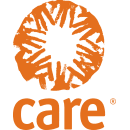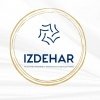Safeguarding Specialist
الوصف الوظيفي
لقد انتهت صلاحية هذه الوظيفة في 2024-02-05
تصفح أحدث الوظائف
عند التقدم لاية وظيفة عن طريق الانترنت، لا تقم بإعطاء معلومات بطاقة الأعتماد او أية معلومات بنكية / مالية لصاحب عمل. نصيحة من جوبس لحمايتك :
آخر الوظائف المعلنة بواسطة
CARE Palestine (WB/G)- مؤسسة كير الدولية فلسطين
المسمى الوظيفي
تاريخ النشر
Field Project Officer
الخليل
30, Jun
Women Equality Officer
جنين
17, Jun
Reporting & Budgeting Analyst
رام الله والبيرة
4, Jun
حارس أمن
قطاع غزة
21, May
Nutritionist
قطاع غزة
15, May
Protection Officer
قطاع غزة
11, May
Senior Supply Chain Officer
رام الله والبيرة
8, May
Grants & Compliance Manager
رام الله والبيرة
8, May









